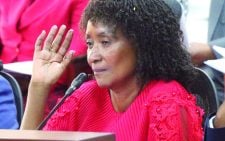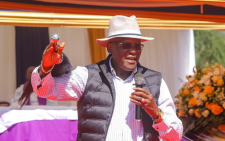Headmaster’s action turning point in man’s tragic life

We hailed from the same constituency in Kisii and found ourselves at the same high school in neighbouring Homa Bay. Even then, his intellect set him apart – we nicknamed him “The Intellectual”, a pretentious title he embraced with such apparent pride that it became inseparable from his identity.
He was forever clutching a book or a well-worn copy of Drum, Newsweek, or Reader’s Digest. He lent me his copy of North of South by Shiva Naipaul, which led me to the works of V.S.
Naipaul, the elder brother who would later win the Nobel Prize in Literature. That single book loan opened doors to literary worlds I might never have explored otherwise.
His academic brilliance was matched by a turbulent spirit that seemed to drive and torment him at the same time. While we merely talked about writing someday, he was already publishing his budding thoughts in daily newspapers. His words, though unformed, showed glimpses of a sharp mind.
But his path was one of constant struggle. Among our classmates from modest backgrounds, his financial situation was particularly dire. The headteacher would routinely send him away for unpaid fees, and he’d vanish for weeks into the uncertainty of home, only to return for term finals and ace every test, as if he’d never missed a day.
The contradictions in his character were sometimes unsettling. His self-assurance could tip into bullying – jumping queues at the dishwashing point near the dining hall while other students watched uneasily, interjecting himself into conversations only to dismissively laugh at other students’ ideas. It seemed as if his intellectual gifts had become a weapon he wielded against the world.
A critical moment in his life came during our A-level exams, a turning point that I think echoed through the rest of his life.
He was barred from sitting the tests over unpaid fees, a cruel decision that likely altered the course of his life forever. I was certain he would have excelled and gone on to university, maybe even becoming the writer or intellectual he so desperately wanted to be.
Months after the exam results were announced, I bumped into him on the streets of Kisii town. He was teaching at a private secondary school nearby, having secured the position through means I suspected were, shall we say, unorthodox. We eventually lost touch, and I left Kenya.
Years later, in New Hampshire, as I prepared to retire to bed, I received a call from Kenya. The lady on the line introduced herself as The Intellectual’s widow. Her husband had died a short time earlier, she reported, and her father-in-law had helped her track me down.
The last time I had seen The Intellectual, he was single and painfully awkward at wooing the opposite sex. But he must have finessed his courtship skills. He had married and raised several children.
Unfortunately, he couldn’t hold down a job and had become a social butterfly. He had physically abused his partner, and she had the scars to prove it. The couple had drifted apart and when the end came for him, he was living alone in a town far away from his family.
His story haunts me still, particularly during quiet moments when I reflect on the different paths our lives have taken. I wonder about the weight of that single decision – the headmaster’s refusal to let him take his exams. Could a moment of compassion have set him on a different path?
But I know life rarely offers such simple answers. Maybe what made him brilliant also made him vulnerable to the hardships of life. The smart, troubled young man who introduced me to great literature had remarkable gifts and terrible flaws.
In remembering him, I hold space in my heart for both – for the intellectual who helped me discover new worlds of thought and for the troubled soul who couldn’t find peace in his own world.
— The writer is a Sub-Editor with People Daily














